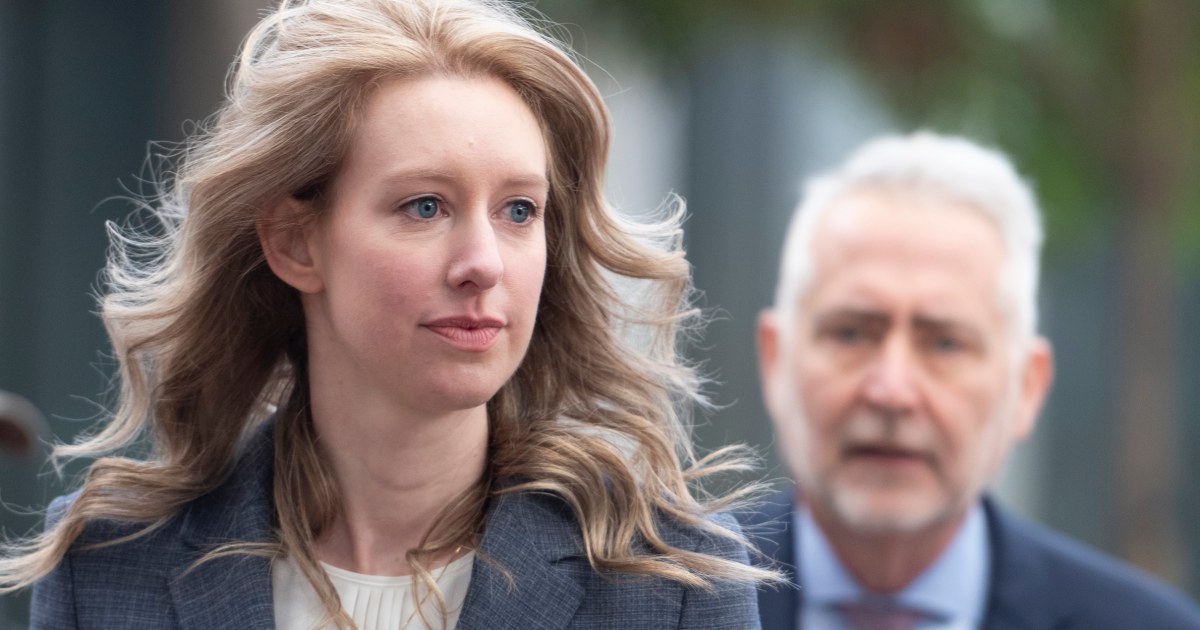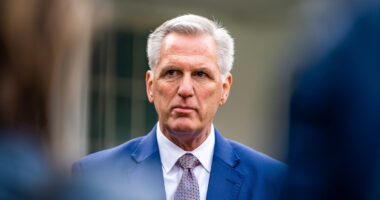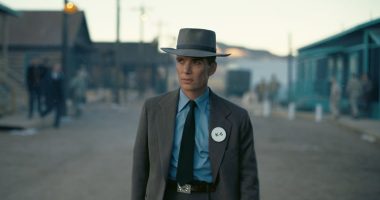
SAN JOSE, Calif. — Theranos founder Elizabeth Holmes resumed testimony Monday in the closely watched fraud trial over her failed blood-testing startup.
After a delayed start, Holmes described what she thought were promising partnerships with pharmaceutical companies and confirmed the company never finalized a deal with the Department of Defense, as she testified in her own defense Monday, the continuation of her surprise testimony.
In a move that most legal experts had discounted as too risky, Holmes’ defense team had called her to the stand late Friday as a witness, where she testified for about an hour. Federal prosecutors allege that the now-defunct blood-testing firm she started in 2003 misled investors and patients, charging her with two counts of conspiracy to commit wire fraud and nine counts of wire fraud.
As she continued her testimony for nearly two hours on Monday, Holmes outlined the fundamental promise of Theranos’ technology, to reduce the amount of lab equipment required for a blood test.
“We thought this was a really big idea because these robots that are used in a traditional lab as far as we knew had not been miniaturized,” she said.
Holmes’ attorney, Kevin Downey, spent the court time questioning his own client — the defense’s first opportunity to directly refute the government’s allegations of fraud. Though, as prosecutors had noted, the defense had already spent more time cross-examining the prosecution’s witnesses than the government had.
Downey painted a picture of a young company in the late 2000s, illustrating its attempts to pursue deals with major entities in government, academia and pharmaceutical companies, including Merck, AstraZeneca and Centocor, among others.
“Merck sent data back to Theranos showing how well we performed compared to their traditional assays,” Holmes said, while acknowledging that the two companies did not collaborate on a clinical study.
Additionally, Holmes explained, there were some attempts to work with a section of the United States Army known as the Telemedicine and Advanced Technology Research Center, or TATRC.
“One was seeing if there were markers in the blood to see if we could predict PTSD, one was diabetes management,” Holmes said, using the acronym for post-traumatic stress disorder.
But, she acknowledged, the company was never able to complete a deal with TATRC.
Defense questioning of Holmes will continue Tuesday. Government lawyers will have a chance to cross-examine her when the defense finishes their questions, either when court resumes on Tuesday or next week, after a three-day break for the Thanksgiving holiday.
Left unaddressed so far in the description of partnerships with pharmaceutical companies was a key piece of government evidence: allegedly doctored Theranos lab reports and studies affixed with unauthorized logos from the companies, appearing to investors and business partners that the companies endorsed Theranos’ findings.
Witnesses for these companies testified earlier that the use of the logos was unauthorized and they weren’t aware of how Theranos was representing them.
The start of Monday’s proceedings was delayed by over an hour and a half. When court was set to begin at 9 a.m. Pacific Time, the attorneys for both sides left their respective tables in the courtroom. During that period, Downey and Assistant U.S. Attorney Jeff Schenk were seemingly in chambers with U.S. District Court Judge Edward Davila. They were later joined by another attorney from Holmes’ table before eventually returning.
Holmes, who rocketed to fame as Silicon Valley’s youngest female self-made billionaire, entered the courthouse early Monday just before 8 a.m., gripping the hand of her mother on her left and her partner, hotel heir Billy Evans, on her right.
She moved swiftly through a crowd of photographers and reporters, over 50 in all, some of whom had lined up before 4 a.m. to secure a place in line to guarantee entry into the small courtroom. Several dozen observers also lined up, including listeners of various podcasts that have been following the trial.
The case has drawn widespread fascination beyond the world of business and startups, becoming the source of multiple TV and movie adaptations, books and podcasts following the blow-by-blow. Self-described “girl boss” fans defend Holmes on social media and wear t-shirts referencing the company’s story.
The theory offered by the defense so far, centering around distancing her from the actions executed by her staff, does not hold water, said John Carreyrou, whose skeptical 2015 and 2016 investigative articles for the Wall Street Journal kicked off the downfall of Theranos and its lauded CEO.
“She’s the CEO, she’s the founder,” he told NBC News in an interview outside the courthouse before Monday’s session began. “It’s not credible to me because I know the story inside out,” said Carreyrou, who noted that Holmes was looped in on key email exchanges. “It matters whether it’s credible to the jury, and that’s less certain.”
“It matters whether it’s credible to the jury, and that’s less certain.”
On Friday, the defense asked Holmes to recount her early days as a Stanford student leading up to her concept and patent application for a blood diagnostics system that would use finger-prick tests instead of venous blood draws and run a multitude of tests.
Testifying in the deeper voice for which she is known, Holmes described meeting the chair of the chemical engineering department, who encouraged her to keep pursuing her idea. Holmes said she had reached out to numerous members of the Stanford community, seeking advice and connections.
Holmes’ testimony came after the prosecution rested following 11 weeks of testimony and 29 witnesses. Immediately afterwards, one of the original charges was dropped, the result of a prosecutor error earlier in the trial.
If convicted, Holmes faces up to 20 years in prison, a $250,000 fine and restitution.
A separate trial for her co-defendant — former boyfriend, Ramesh “Sunny” Balwani, who was COO at Theranos — is scheduled to begin Dec. 16. Holmes’ legal team successfully argued for their trials to be separate, citing “an abusive intimate partner relationship,” and saying that seeing him in court could trigger “debilitating PTSD symptoms.” Balwani adamantly denied the accusations, according to court documents.
Source: | This article originally belongs to Nbcnews.com










